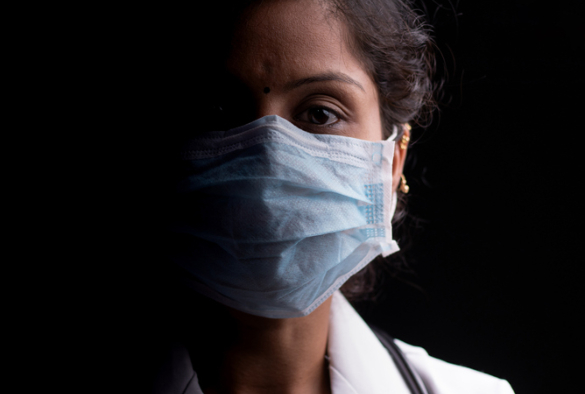
Staff across all levels of UK health and social care reported feeling betrayed, morally violated and being treated unjustly and unfairly at work during the Covid-19 pandemic, a study led by the University of Liverpool has found.
Of 400 health and social care workers surveyed in autumn 2020, 19% displayed clinical levels of post-traumatic embitterment disorder (PTED) and 73% experienced at least one Covid-related morally injurious event (MIE).
“In the wake of Covid-19, healthcare research has mainly focused on symptoms of anxiety, depression, PTSD and stress. However, an equally pressing health-related concern is the way in which workers feel they have been treated throughout the pandemic and the associated psychological impact,” explains first author Chloe Brennan, from the University’s Institute of Population Health.
Witnessing or perpetrating events that violate one’s moral values are called ‘morally injurious events’ (MIEs), with associated symptoms including guilt, shame and poor mental health. Importantly, MIEs and PTED shared the same key risk and protective factors.
The researchers found that experiencing MIEs and PTED was more likely in clinical support workers and those experiencing occupational stressors.
Occupational stressors included exposure to COVID-19 in their job, a lack of personal protective equipment (PPE) and/or clear training, having to make difficult decisions regarding resource allocation, an inability to provide adequate care or save lives, and separation from, or fear for, loved ones due to working during the current pandemic.
Chloe adds: “Our study provides evidence that those who are exposed to occupational stressors and have a lack of belief that they experienced fair processes are among the most at risk. Our findings suggest that healthcare leaders need to tackle systemic issues that are causing moral injuries and embitterment in the first place, rather than focusing on an individual’s resilience. Healthcare authorities should strive to maintain fair ‘processes’ even if reducing all workplace stressors is unachievable.”
The study, which was carried out in collaboration with colleagues from the Royal College of Surgeons in Ireland and is published in the journal BMJ Open, is among the first to provide prevalence estimates of exposure to MIEs and PTED in health and social care workers as a direct result of working during the COVID-19 pandemic.
It was supported by funding from the Economic and Social Research Council UK and COVID-19 strategic funding from the University of Liverpool.
Research reference:
Brennan CJ, McKay MT, Cole JC Morally injurious events and post-traumatic embitterment disorder in UK health and social care professionals during COVID-19: a cross-sectional web survey BMJ Open 2022;12:e054062. doi:10.1136/bmjopen-2021-054062